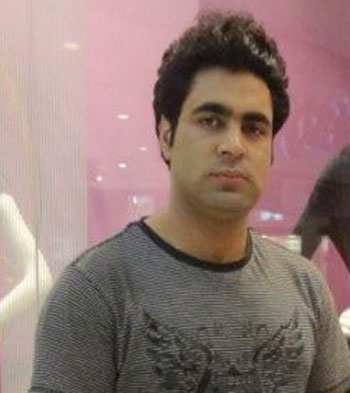Aijaz Rashid, 30, a researcher from Arwah in Budgam who is working on a cancer drug which is 8 times more effective than the present most effective drug in the market, defied set norms by leaving his job as ReT teacher to pursue his dreams. In a conversation with Irfan Rashid, Aijaz talks about his journey, inspiration and challenges

Kashmir Life (KL): You are working on Cancer drugs, something extraordinary for a Kashmiri student who once worked as a ReT teacher. It must be an interesting journey?
Aijaz Rashid (AR): Yes it is really an interesting journey as I feel good while working on problems related to cancer, pursuing my childhood dream of becoming a scientist and not a teacher. It was really a tough call when I left my job in Kashmir and opted for research. But it is the end that really matters.
KL: How hard was it to leave a government job?
AR: It was the most difficult phase of my life as nobody including my parents, close relatives and neighbours talked to me for over a month. They all thought I had done some kind of sin by leaving a government job. Even my villagers tried to convince me thinking I am under some bad influence. You are sort of an outcaste if you dare to leave a government job in Kashmir.
KL: You were selected in AIIMS and IISC Bangalore for research, both are top notch institutions, but you opted for IIT Bombay. Any particular reason?
AR: I was fortunate enough to qualify all top institutes in Technology, Medicine and Science. I topped AIIMS New Delhi, exam for Phd. But I chose IIT Bombay as it has best labs available for the kind of research I was intending to do. Second reason was that IIT Bombay offers international sandwich Phd programmes, something that helped me pursue research in Canada.
KL: How was your experience as a researcher in Canada? Does lack of exposure back home make it hard for Kashmiri to survive tough international competition?
AR: I found working with foreigners is easy and enjoyable. And I don’t think that it is tough to survive international competition. The fact is that Kashmiris’ are good at theoretical knowledge, so they cope up with the situation and new challenges. But one thing is true that we lack exposure which makes us less confident while opting for researches abroad. We hardly opt for GRE or TOFEL.
KL: How is your research going to help Kashmir where Cancer related deaths are on the rise?
AR: Being a Kashmiri I feel it’s my duty to help my people first. I want to work on some of the most prevalent forms of cancer in Kashmir like esophageal and breast cancer. I would be happy to apply my knowledge and experience to explore the mechanism and aetiology of cancers prevalent in Kashmir. But research is very costly affair and can’t be carried out at an individual level. It needs lots of money and infrastructure which government has to provide. Also I don’t think there is dearth of good researchers in Kashmir but Government is not providing adequate facilities.
KL: What were your important research publications? How they shaped your path to become a young scientist?
AR: During the course of my work I published a model regarding bacterial cell division in nature proceedings. It was big achievement for IITB, so when IITB signed a MOU with university of Alberta Canada, I was offered a sandwich Phd position under the guidance of Prof Walter Dixion and Prof Dulal Panda.
I also proposed a model of Bacterial cell division. I got Canadian scholarship as young Scientist and IIT Bombay provides me travel support for visiting Canada.
I worked for 6 months in Canada. I published many papers in reputed journals like Biochemical Pharmacology, Nature Proceedings, RSC Advance and Dalton Transition. I also got a patent for discovering three new potent compounds showing 8 fold high anticancer activity than well know Cisplatine anticancer drug.
KL: How exactly does Bacterial Cell Division model work?
AR: The most important thing about this model is that it is a novel strategy to combat bacterial infection by using the knowledge about mechanism of cell division rather than approach of using antibiotics. It is a novel mechanism based on infection control.
KL: How hard was it to discover three new potent compounds showing eight fold high anti cancer activity than well known and most effective Cancer drugs available?
AR: I have screened several hundred compounds from Indian and international labs for anticancer activity and ultimately got 3 DNA targeting and two microtubule targeting anticancer compounds. It is very satisfying to have discovered something really helpful to people.















